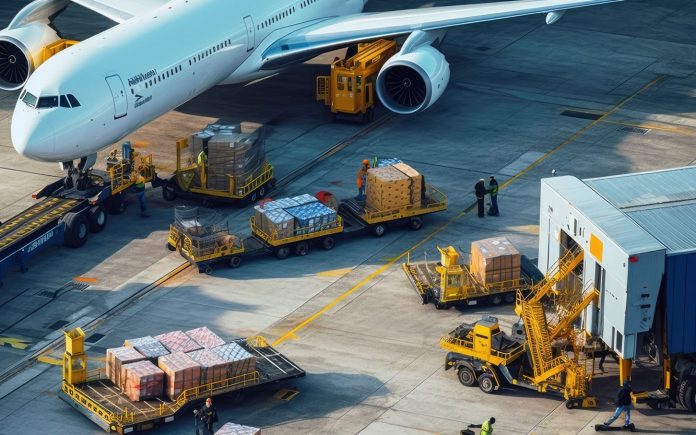In the dynamic world of international trade, businesses traverse seas and skies to transport goods across borders, underscoring its role as a cornerstone of the global economy. However, with its advantages, international shipping brings many risks. Theft, unexpected damage, customs snags, and even simple miscommunication can quickly become significant complications.
These challenges often results in heightened stress and added responsibilities for business owners and logistics managers. Their primary task is to ensure products reach their destinations without hitches. This article provides businesses with actionable strategies to safeguard international shipments and maintain their esteemed reputation. By addressing these risks, companies can achieve smoother shipping outcomes, bolster customer trust, and protect their investments.
Understanding The Risks Involved
Every shipment sent across borders represents both an opportunity and a set of problems. While the potential for profit and expansion is vast, so are the pitfalls awaiting the unprepared. This article shines a light on some of these risks:
- Theft and pilferage – Theft remains a direct threat and can manifest at various stages in the shipping chain – from warehouses to docks and even during transit. Such occurrences can lead to significant financial setbacks and tarnish a company’s reputation.
- Damage during transit – Regardless of the precautions taken, shipments can face damage. Factors like rough handling, inclement weather, or accidents might compromise the integrity of goods, resulting in monetary losses and eroding customer trust.
- Customs issues and delays – Ever-changing customs regulations can become a maze for even seasoned shippers. A minor paperwork oversight or a misunderstanding of a country’s import/export laws can result in extended delays and extra expenses. For instance, an international moving company in Virginia or any other location consistently updates its knowledge of regulations for the US and the many destinations they serve.
- Lost shipments – Shipments going astray are a stress point for shippers. Misrouted goods or those lost in transit, whether due to logistical missteps, mislabeling, or unforeseen events like natural calamities, can be significant issues to address.
- Fraudulent transactions – In this increasingly digital age, businesses must be vigilant about potential scams or deceitful transactions. Issues like counterfeit money or suspicious shipping addresses can translate to substantial losses.
Recognizing these risks for businesses involved in international shipping is foundational to their mitigation. Being driven, staying informed, and having a strategic plan are essential. The upcoming sections will provide deeper insights and practical solutions to navigate these threats effectively.
Pre-Shipment Precautions
Before a product leaves its starting point, specific measures can significantly minimize potential shipping hiccups. These precautions ensure the safety of the goods and save businesses from unexpected costs and complications. Here are some prudent steps companies can adopt:
- Evaluating shipping partners for their reliability and track record- Selecting a partner with consistently positive feedback and a history of timely deliveries can greatly influence the success of your international shipments.
- Ensuring appropriate packaging for the shipment- Using suitable protective materials tailored to the specific contents can significantly reduce the risk of damage during transit.
- Maintaining precise documentation – Incorrect or incomplete paperwork can cause delays, especially at customs checkpoints. Ensure every required document is correctly filled out, from the product description and value to any necessary licenses or certifications.
- Securing shipment insurance – Consider obtaining insurance for the shipment, especially for high-value or fragile items. Insurance protects against potential damage, loss, or theft during transit.
- Inspecting products thoroughly – Before sending off any goods, conduct a thorough inspection to ensure they’re in perfect condition and meet the destination country’s standards. Doing so can prevent returns or detainment due to non-compliance with regulations.
- Applying distinct and readable labels – Clearly labeled shipments reduce the chances of misrouting. Ensure every package has the correct destination address, contact details, and necessary barcodes or tracking numbers.
- Understanding tariffs and duties – Familiarize yourself with the destination country’s tariff and duty policies. This knowledge can help in pricing decisions and prevent unexpected costs upon the shipment’s arrival.
Implementing these pre-shipment precautions can be the difference between a smooth shipping experience and a logistical nightmare. Through careful preparation and attention to detail, businesses can increase the likelihood of their goods arriving safely and on time.
Monitoring And Tracking
Successfully navigating the complexities of international shipping hinges on businesses’ ability to monitor and track their shipments efficiently. A thoughtful approach in this domain can drastically reduce unforeseen complications and elevate the shipping experience. Here are tips to effectively harness the power of monitoring and tracking:
- Embrace real-time updates – Utilize tracking systems that offer real-time information on the shipment’s location. Updates keep businesses informed and help manage customer expectations, especially if there are unforeseen delays.
- Stay alert to potential disruptions – Ensure your tracking solution provides prompt alerts for disturbances, including route changes or customs delays. You can prevent minor hiccups from evolving into significant setbacks by acting swiftly.
- Document the journey – Opt for comprehensive tracking that records every shipment stage. This detailed log is invaluable when resolving disputes or identifying mishap accountability points.
- Empower your customers – Elevate the customer experience with timely tracking numbers and delivery estimates. A well-informed customer often translates to higher trust and satisfaction.
- Analyze and optimize routes – Regularly review tracking data to discern the most efficient shipping routes. Identifying consistent stumbling blocks can help refine strategies, possibly cutting shipping times and costs.
- Leverage advanced tracking tools – Take advantage of automated tracking platforms from your primary shipping provider or third-party solutions. These tools streamline the process, ensure accuracy, and foster effective communication among involved parties.
By effectively implementing these tips, businesses can transform this logistical aspect into a strategic advantage, ensuring smoother, more reliable international shipping endeavors.
Conclusion
Navigating the multifaceted world of international shipping is no small feat, but with careful planning and a discerning mindset, businesses can rise above challenges and foster thriving global connections. Remember, every shipment is an opportunity—a bridge to a broader market and a testament to your brand’s commitment to excellence. Ready to elevate your shipping strategy? The world awaits your next move.






































